Did you know that the cannabis plant contains over 113 chemical compounds known as cannabinoids? YYou have undoubtedly heard about the two types that get all the attention: Cannabidiol (CBD) and delta-9-tetrahydrocannabinol (THC). So, let’s focus on understanding the differences between these two incredibly powerful cannabinoids.
People have been raving about the potential health effects and benefits of cannabis, and it’s no wonder why. With the legalization of cannabis and marijuana products in more and more states, including Michigan, interest in these cannabinoids is skyrocketing, and we couldn’t be happier about that.
Many products contain CBD, THC, or both designed to alleviate various ailments such as stress, anxiety, and insomnia. But before you try them out, it’s essential to understand the differences between THC and CBD and what kind of effects they might have on you.
What exactly is CBD?
Cannabidiol, or CBD, has become quite the buzzword in recent years. And for good reason! This naturally occurring chemical compound found in cannabis is being explored as a potential treatment for a wide variety of conditions. From chronic pain to anxiety to epilepsy, CBD has the potential to help manage symptoms and improve overall well-being. And that is good news for the socially anxious among us.
So, what exactly is CBD? As mentioned earlier, it’s the second most abundant chemical compound in cannabis. But unlike its cousin THC, CBD is not psychoactive. In other words, it won’t get you “high.” This makes it attractive for people needing and wanting the medical benefits of cannabis without the psychoactive effects.
CBD is derived from either hemp or marijuana. Hemp-derived CBD is legal in many countries and still contains trace amounts of THC, usually less than 0.3%. On the other hand, CBD derived from marijuana may have more THC, which can vary depending on the strain and the processing methods used.
What’s the difference between hemp and marijuana, you ask?
Hemp and marijuana are both plants of the cannabis family, but they differ in their chemical composition and use. Hemp has lower levels of THC and higher levels of CBD. Marijuana, on the other hand, typically has higher levels of THC and lower levels of CBD.
One of the biggest reasons people use CBD is its potential to manage chronic pain. In fact, some studies have shown that it may be more effective than traditional painkillers without the risk of addiction or other adverse side effects. Can we get an Amen?!
CBD is also being studied for its potential to alleviate symptoms of anxiety and depression. Do you see why CBD is all the rage?
A closer look at THC
Now let’s look at THC – the primary psychoactive ingredient in cannabis responsible for getting you high. It’s short for delta-9-tetrahydrocannabinol, but don’t worry about remembering that mouthful. Just remember that THC is what makes smoking weed so damn enjoyable for some people.
THC works its magic by activating the brain’s reward system by signaling the release of dopamine, the brain’s happy hormone. And when your brain releases a flood of dopamine, feelings of euphoria and relaxation abound. Ahhh.
While THC is often associated with smoking marijuana, it can also be found in other forms, such as capsules, edibles, oils, and concentrates. So if you’re not into smoking or just want to mix things up, you can still experience the effects of THC in a way that meets your needs.
But before you go loading up on THC, it’s important to note that it can have some negative side effects, especially if used in excess. These can include impaired coordination, memory loss, and even anxiety and paranoia in some people. So start low, and go slow.
The biggest differences between CBD and THC
Psychoactive Effects
THC is the component in cannabis that can make you feel high or stoned, which some people might love, but others might not want to experience. CBD, on the other hand, doesn’t have any psychoactive effects. So CBD might be the way to go if you’re looking for something to help you relax without getting high.
Legal
The laws around CBD and THC can be a bit confusing, but here’s the gist: CBD is legal in many countries around the world, while THC is still considered illegal in most places, but not Michigan. In the US, CBD derived from hemp with less than 0.3% THC is legal under federal law. So CBD might be your best bet if you’re looking for a legal way to chill out.
Medical Use:
Both CBD and THC have been shown to have some impressive benefits when it comes to medical uses. But the way they work in the body is different.
THC is often used for pain relief, nausea, and appetite stimulation. In contrast, CBD is often used for anxiety, inflammation, and seizure disorders. So if you’re looking for a specific kind of relief, choosing the right one is essential. HighHello is here to help.
Top 10 medical benefits of THC
- Pain Relief: THC has pain-relieving properties and can treat conditions such as arthritis, multiple sclerosis, and chronic pain.
- Nausea and Vomiting: THC has anti-nausea and antiemetic effects and can be used to treat chemotherapy-induced nausea and vomiting.
- Appetite Stimulation: THC has appetite-stimulating effects and can be used to treat anorexia and cachexia.
- Glaucoma: THC can help to lower intraocular pressure and is used to treat glaucoma.
- Sleep Disorders: THC can help to improve sleep quality and is used to treat sleep disorders such as insomnia.
- Muscle Spasms: THC can help to reduce muscle spasms and is used to treat conditions such as multiple sclerosis and spinal cord injury.
- Anxiety: THC can have anxiolytic effects and can be used to treat anxiety disorders.
- PTSD: THC can help to reduce symptoms of post-traumatic stress disorder (PTSD).
- Asthma: THC can help to dilate the bronchial tubes and is used to treat asthma.
- Tourette’s Syndrome: THC can help to reduce tics and is used to treat Tourette’s syndrome.
Top 10 medical benefits of CBD
- Pain relief: CBD has been shown to have pain-relieving properties, so it’s often used to treat chronic pain conditions such as arthritis, multiple sclerosis, and neuropathic pain.
- Anxiety and depression: CBD has been shown to have anxiolytic and antidepressant effects, making it a popular treatment option for those struggling with anxiety and depression.
- Epilepsy and seizure disorders: CBD has been shown to reduce the frequency and severity of seizures in people with epilepsy and other seizure disorders.
- Neuroprotective properties: CBD has been shown to have neuroprotective properties, which may make it a potential treatment option for conditions such as Alzheimer’s disease, Parkinson’s disease, and multiple sclerosis.
- Anti-inflammatory effects: CBD has been found to have anti-inflammatory properties, which may make it a potential treatment option for conditions such as rheumatoid arthritis, Crohn’s disease, and ulcerative colitis.
- Cancer-related symptoms: CBD has been shown to help alleviate symptoms associated with cancer and cancer treatment, such as nausea, vomiting, and pain.
- Acne: CBD has anti-inflammatory properties, which may help to reduce inflammation and oil production in the skin, making it a potential treatment option for acne.
- Addiction: CBD has been shown to have the potential as a treatment for substance abuse disorders, including opioid addiction.
- Diabetes: CBD has been found to have potential as a treatment for diabetes by reducing inflammation and improving insulin sensitivity.
- Sleep disorders: CBD has been found to have potential as a treatment for sleep disorders such as insomnia by promoting relaxation and reducing anxiety.
Let’s talk about side effects.
THC can cause temporary side effects like dry mouth, red eyes, increased heart rate, and impaired memory and coordination. So, if you’re planning on getting stoned, you might want to be prepared for those.
CBD, on the other hand, is generally well-tolerated and has few reported side effects.
Drug Testing
Last but not least, let’s talk about drug testing. THC can show up on drug tests for several days or even weeks after use, which is something to keep in mind if you have to pass a drug test.
CBD, on the other hand, is unlikely to cause a positive result on a drug test. But it’s worth noting that some CBD products may contain trace amounts of THC, so if you need to pass a drug test, check the label and source of your CBD product to ensure it’s THC-free.
Why does one make you high and the other doesn’t?
Well, let me break it down for you in simpler terms. THC can alter our brain’s natural endocannabinoid system by binding to CB1 receptors in the brain. These receptors are found in areas associated with memory, thinking, pleasure, coordination, and time perception, among others. By binding to these receptors, THC disrupts the normal functioning of these areas, leading to the “high” that people often associate with marijuana use.
To put it simply, THC is like a key that fits into a specific lock in the brain. Once inside, it can cause a range of effects that can alter perception, create feelings of euphoria, and even impact appetite and mood.
Why doesn’t CBD get you high?
The reason CBD doesn’t get you high is fascinating. While THC and CBD both interact with the endocannabinoid system in the body, CBD has a different way of binding to the receptors. Unlike THC, which has a strong affinity for the CB1 receptors in the brain that can cause those classic “high” effects, CBD doesn’t have the same impact on those receptors.
Instead, CBD interacts with other receptors in the body, such as CB2 receptors and serotonin and opioid receptors. This leads to a wide range of effects, such as reduced inflammation, pain relief, and improved mood, without any psychoactive effects associated with THC.
But here’s the dope part: CBD can cancel out some of THC’s psychoactive effects when the two compounds are combined. This means CBD can help reduce the likelihood of experiencing a “high” when consuming THC. So, while THC may be the star of the show when it comes to producing that famous cannabis high, CBD is a powerful and versatile compound in its own right, with a range of potential benefits and effects that make it worth exploring.
Let your HighHello budtender answer your questions about CBD and THC
All HighHello members living in Michigan get a monthly session with a virtual budtender. Take advantage of this personalized service; subscribe today!
What? Not eligible for cannabis delivery in Michigan?
Sign-up for the waitlist below to get notifications on new delivery zones in Michigan and to receive our monthly newsletter.

